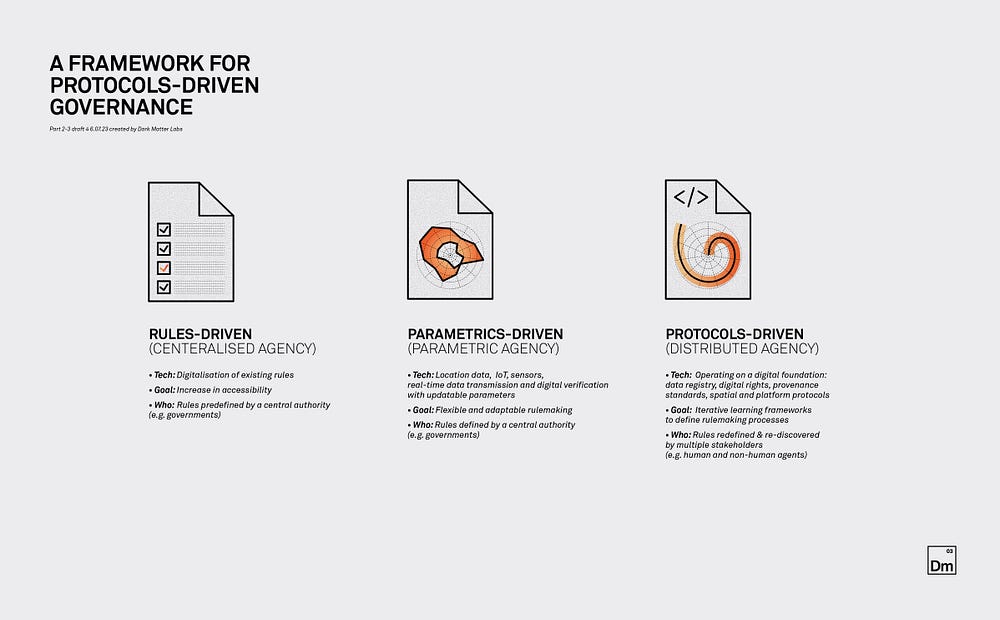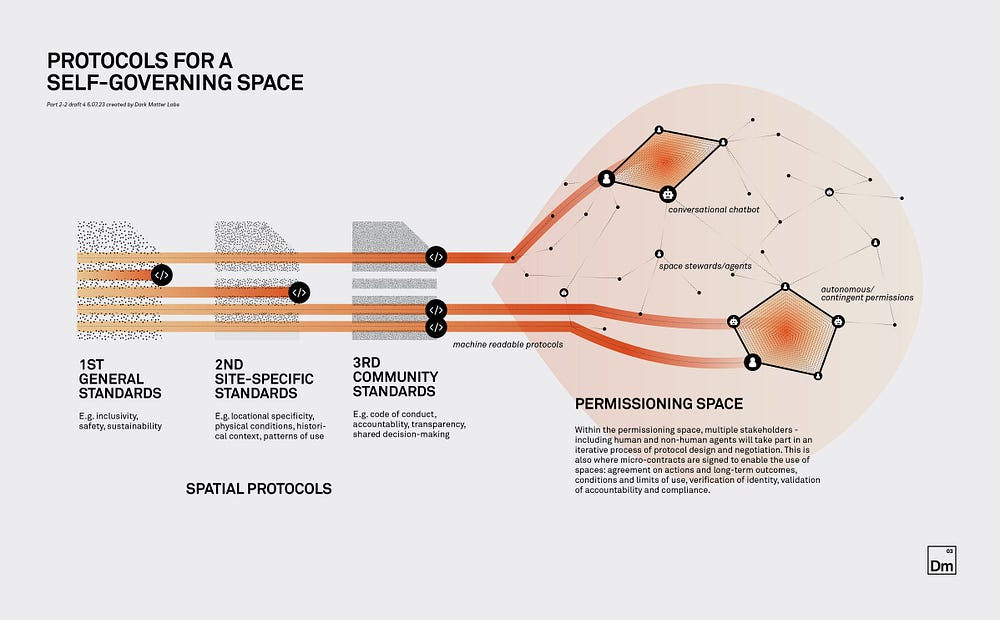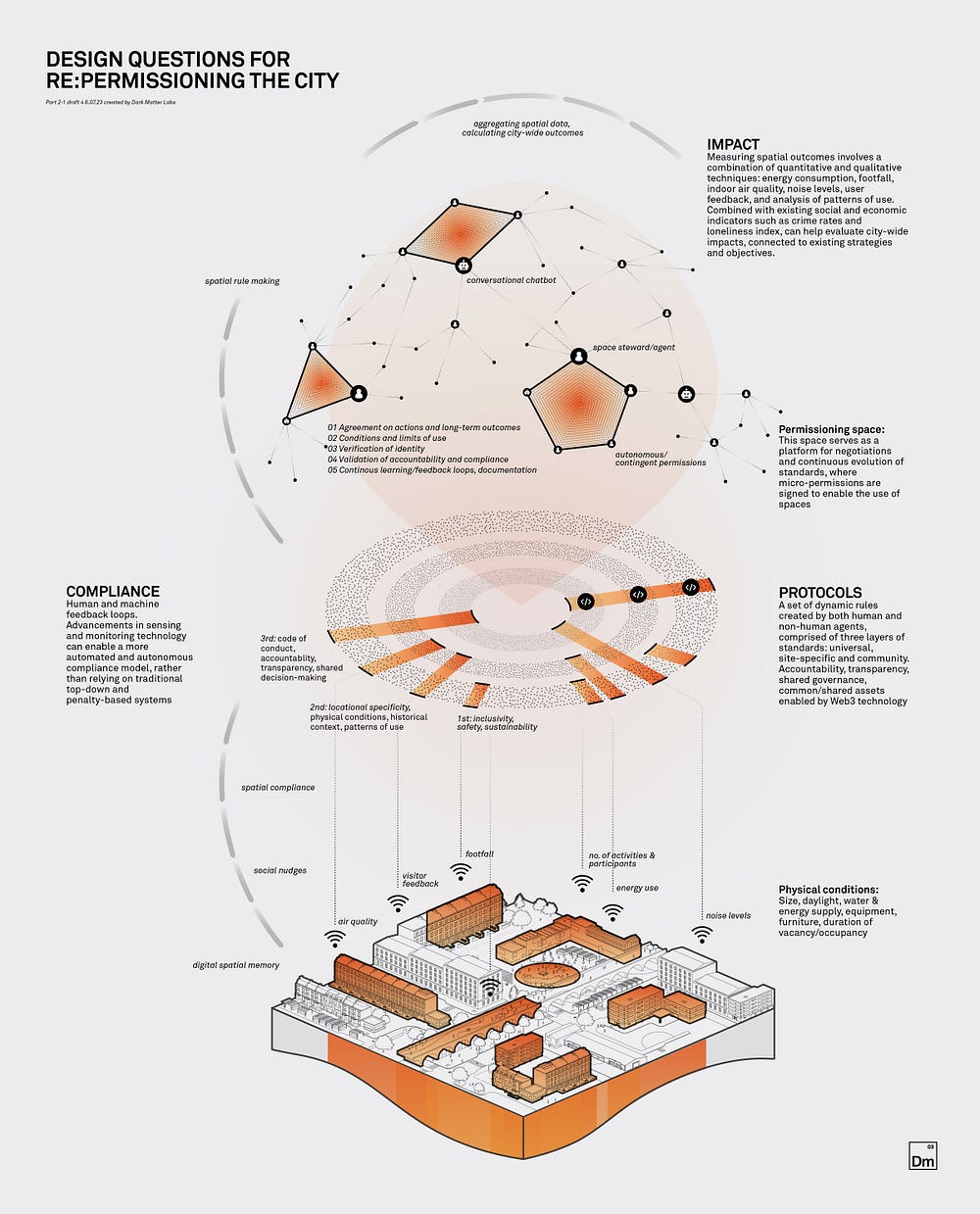What
Re:Permissioning the City is an experimental project aiming to harness protocol-based governance to unlock cities’ growing underutilised spatial assets for an emergent civic commons economy.
Who
Where & When
Planning a pilot in Daegu, South Korea
Why
The structure and needs of human society is always changing, and so our urban spaces have to change too. Most recently, remote work, COVID-19 and extreme climate are driving new requirements in our spaces, causing office buildings to sit empty while outdoor space is being harnessed more than ever.
In this context, this project explores how we can create governance tools to rapidly evolve usage of civic spaces and generate diversity and emergence by granting responsive permissions to citizens.
We are particularly interested in exploring how ‘rules’ and ‘rule-making’ can evolve and adapt to a complex system that requires flexibility and responsiveness in the design of our societal structures.

How
Key principles
- What if we could foster reciprocal, stewardship-based agreements and perceive space as a foundational ‘civic’ asset capable of generating positive outcomes for the entire city?
- How might we harness the capabilities of citizens to shape our urban environments and create opportunities for emergent uses that have the potential to revitalise our cities?
- How can the system facilitate new governance of urban space that is based on discursive (as opposed to coercive) practices of collaborative rule-making and trust-based compliance?
- How can we encourage a culture of stewardship towards shared urban assets that goes beyond traditional rental or ownership agreements?
- How can the system encourage the repurposing of spaces to drive positive (neighbourhood/city) outcomes?
- How can we develop the tools to measure, monitor and aggregate the spatial impact of civic activities in the city — impact that is aligned with the city’s larger objectives?
Functions

Protocols for a self-governing space
- 3 layers of standards that form the permissioning space: This is both a discursive space where negotiations occur and a decision-making space where micro-contracts are signed electronically to enable the use of spaces.
- Compliance and enforcement through both sensors and monitoring technology, and human systems such as ratings, digital nudges and incentives for repair & maintenance.
- Flexible protocols to discover interdependencies and conditions for mutual benefit for all agents– be it a human, a stray cat, or a window in a building.
Measuring spatial outcomes
- Measurement of outcomes through both quantitative and qualitative metrics such as energy consumption, footfall, noise levels, social media posts and user feedback.
- Combine with existing social and economic indicators (such as crime rates, loneliness index) to form part of a larger impact evaluation metric that validates the social impact of civic spaces, leading to further investment.
- Aggregated spatial outcomes and patterns of civic activities can form part of the city’s collective intelligence and support urban planning and legislation.
